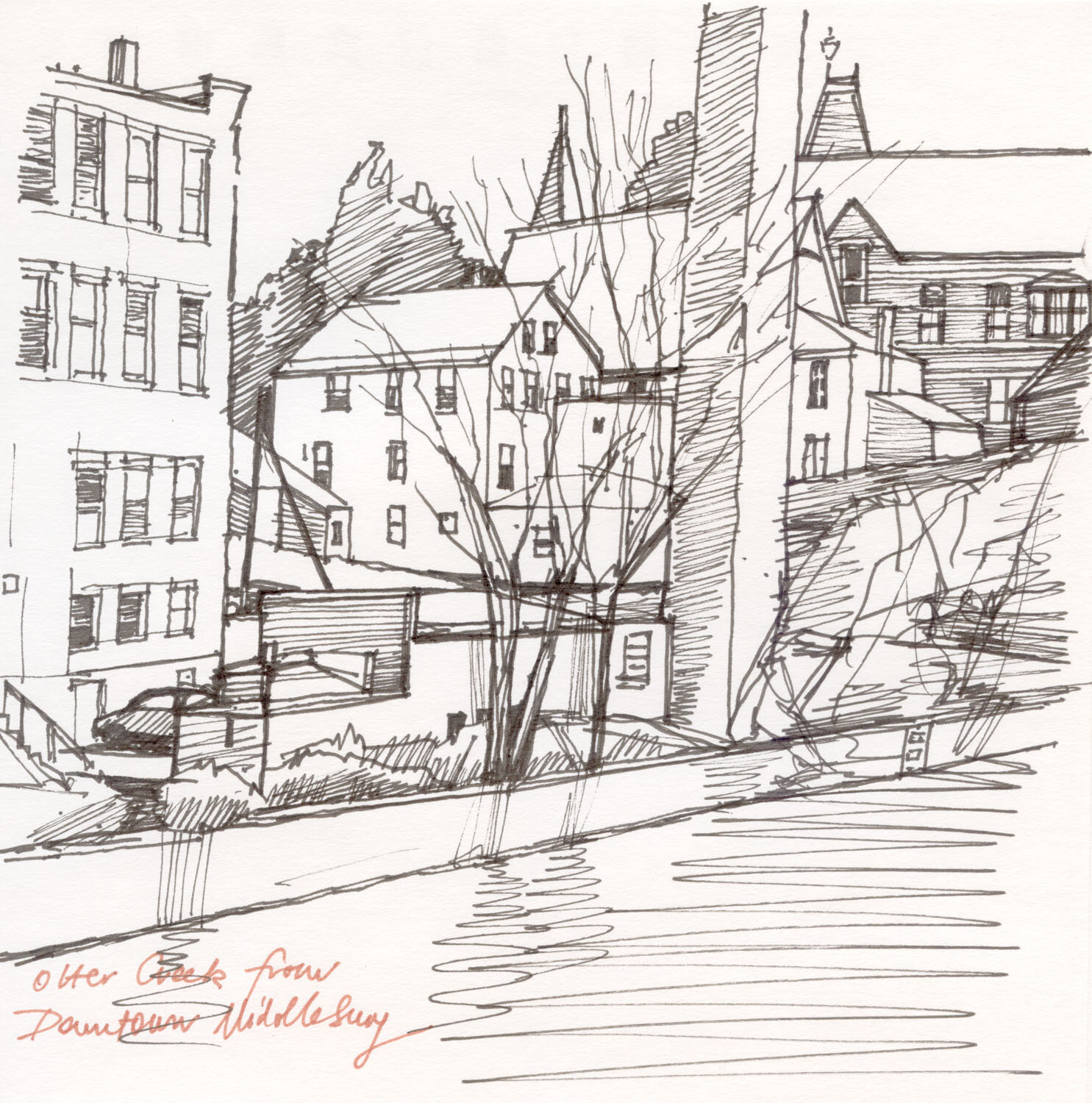Middlebury
William Hazlitt Upson dwells in Middlebury. Though professedly a sufferer from ergophobia, Mr. Upson works. He has turned out thirty-seven stories about Alexander Botts, super-salesman of Earthworm tractors.
Charles Edward Crane, “Let Me Show You Vermont”
I'm attracted like a magnet to the more downscale parts of a town, the backstreets lined with faded factories, moldering mills and dusty hardware stores, worn remnants of past decades—or even past centuries.
So instead of touring the genteel campus of Middlebury College, I wandered down to Otter Creek to check out what had become of the water-powered industrial buildings of yesteryear.
I found the Vermont State Frog Hollow Craft Center settled in the shell of a old mill, and chatted with some enterprising artists with homes, studios and galleries in downtown buildings. I learned from them that one long brick row on Main Street is named for 19th century philanthropist and art collector Philip Battell. He came from a prominent family of politicians and wealthy eccentrics--his brother Joseph is credited with preserving hundreds of acres of nearby forest (including iconic Camel's Hump) and the Morgan horse breed.
One of a long line of idiosyncratic Vermont authors, Joseph wrote the novel "Ellen--or the Whisperings of an Old Pine," a dialogue between a sixteen-year-old girl and a wise tree, a conversation that covered such topics as the wave theory of sound propagation. The skiable Mt. Ellen at Sugarbush Resort is that imaginary character's namesake.
I strolled down to the park, where the gazebo brought back memories of a summer visit to Vermont twenty-five years before, when our family wandered into an evening community concert held here on the green. The small scale of the entertainment, the bucolic setting, and the town itself felt comfortable and welcoming. Our vague dream of a permanent family move from Washington, DC to Vermont evolved into a definite plan during this short vacation.
Looking from the bridge on Merchant's Row towards the old industrial area on Otter Creek, I'm thinking what I've thought so often when exploring Vermont towns: the "selling and buying" areas are intact, but the "making" sections are mostly gone.
Some of the buildings that created energy and goods for the community are still standing, but their original functions have long vanished. Like so many places diminished by the disappearance of the industries that drove their creation and growth, Middlebury is now looking to the arts for a new economic engine. Artists, after all, are still in the business of making things.



